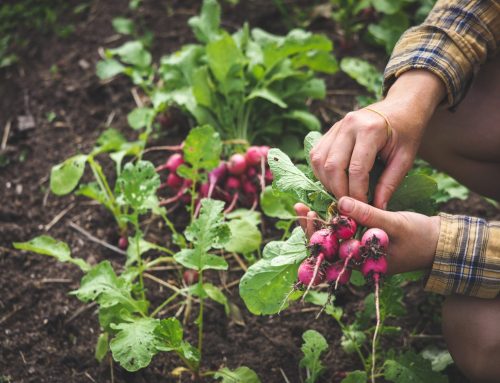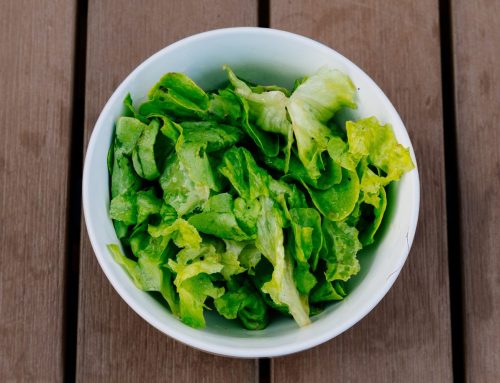Member profile – Old Mill Road BioFarm, NSW
By Sophie Lamond (AFSA) and Fraser Bayley
This year AFSA is getting to know its members a little better. Every newsletter we’ll be having a chat to one of our members to find out about the work they do, their dreams for our food system and their thoughts on food sovereignty.
To kick of the series we’re chatting to Fraser Bayley, from Old Mill Road BioFarm on the South Coast of NSW. Fraser runs the farm with his wife Kirsti. The pair are driven by a desire to run a farm on ecological principles connected to both the local environment and the local community. They also run training, workshops and internships to encourage more people on to the land.
Visit their website at oldmillraod.com.au to find out more or follow them on Instagram @oldmill_road
Australian Food Sovereignty Alliance: Tell us a little a bit about Old Mill Road BioFarm
Fraser Bayley: It’a a family farm so we have the absolute luxury and benefit of having no rent or mortgage. This has allowed us significant freedom to experiment and make mistakes, which we’ve needed as we have no idea what we’re doing. The farm is 65 acres and we earn very close to our entire income from a two-acre area (if we include the dam, shed, open area, tractor access etc). Our vegie patch is about 4000sqm of cultivated beds within that two acres.
AFSA: Why did you get into farming?
FB: Completely by accident. The first couple of years I lived here I worked away for intense periods and then retired to the country life, repaired fences, repaired our house, daydreamed about ideas. Kirsti lived in Sydney would visit every fortnight or so. After a bit we decided we should use the farm and investigated agri-tourism because it’s quite a pretty block. We blew a LOT of money on consultant’s reports to file with our DA and after some time of compiling these reports it became apparent that we were unlikely to be able to jump through all the required hoops. At the same time we had developed an impractical but attractively shaped vegetable garden that was intended to be a space for the potential tourist customers to enjoy. By this time we had no money and had to create our own jobs quickly so we took a market stall and sold about $300 worth of produce. The next week we had nothing to sell. It grew from there.
AFSA: Tell us a little bit about biological agriculture…
FB: For us the soil is the foundation for our enterprise. The soil is a living ecology. The physical structure and balanced chemistry of the soil environment is critical but the soil biology is what brings it all together. The plant is as much part of the soil biology as worms, protozoa, flagellates, ciliates, archaea, nematodes, fungi and so on. This whole ‘village’ of variety underpins life on earth. Our existence on this planet depends upon the intricate inter-dependence of all this life that is paid no attention in conventional agriculture. I wouldn’t be so bold as to say we are a biological farm right now but it is where our ideal lies completely. By that we aim to preserve that soil “village”, to pay attention to the evolved (or created, depending on your viewpoint) biological requirements of the life forms we select to cultivate for our income. Whether that be a lettuce, a fig, a beef or an egg – there’s hundreds of millions of years of very intelligent design that surrounds that biology to enable it so reach its genetic potential. I’m not sure that answers the question.
AFSA: You’ve been a guest instagrammer for Modern Farmer – how important do you think digital communities are in building networks in contemporary agriculture?
FB: Farming can be isolating. You need to rely on yourself and your immediate neighbours and particularly if you’re surrounded by conventional thinking and have little experience, so to have an entire community of like-minded individuals in your pocket is pretty cool. It may also have marketing advantages but I think the connection you build, the identification with those with similar circumstances, the empathy with big problems, the mutual inspiration you can give and receive is bloody beautiful.
AFSA: What does food sovereignty mean to you?
FB: Not being dictated to about what food we as a community can choose to eat. Developing a food culture that is determined by the environment in which we live. Passing food by hand from us to you.
AFSA: Tell us your wildest dream for a better food system…
FB: I have to leave the cities out of this dream as the complexity of re-creating a city’s food supply and how farming interacts with a concentrated population the size of a city might be better left for someone who actually lives in one. In regional Australia it might look like market gardening right at the fringe of the town, with larger mixed farming systems slightly further out. Food and beverage choices determined by what grows in the area. A community that can cook. A supermarket in town that only stocks food stuffs that have a local provenance and collaborative supply from farmers to that supermarket.
AFSA: What are you harvesting right now at Old Mill Road?
FB: Pumpkins, salad greens, fennel, beans, beets, carrots, celery, sweet corn, shallots, strawberries and peppers. We’re eating all the figs as they’re too good to sell.


